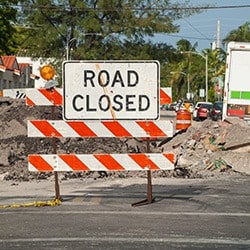Condemnation & Eminent Domain Lawyer Durham, NC | Durham, North Carolina Eminent Domain Attorney
Experienced Eminent Domain Lawyers Defending Property Rights in Boone, North Carolina
Eminent domain cases involving valuable commercial real estate in Boone can be complex and challenging. With the government’s legal teams and experts working against you, having a committed lawyer on your side is crucial. At Henson Fuerst, we focus on defending the rights of commercial property owners, helping them navigate the land condemnation process. If your property is at risk of being taken, call us at 919-781-1107 or complete our online case evaluation form for a free consultation.

David Henson
Attorney
Anne Duvoisin
Of-Counsel
Chris Beacham
Attorney
Our Eminent Domain Legal Practice
The eminent domain team at Henson Fuerst focuses solely on representing commercial property owners facing land condemnation. We are selective in the cases we agree to take on, ensuring each case receives the individualized attention and resources required. Our attorneys deeply understand the nuance in eminent domain cases and work tirelessly to achieve a favorable outcome. Through collaboration and a track record of success in challenging government entities and eminent domain law, we are committed to delivering high quality representation. Contact us to learn how an eminent domain attorney can assist if you're facing land condemnation through eminent domain.
Types of Property Owners Represented by Our Condemnation Lawyers in Boone, NC
Our attorneys assist a wide range of commercial property owners in eminent domain matters, including:
- Convenience Stores
- Shopping and Strip Centers
- Retail and Office Investments
- National and Local Restaurants
- Industrial and Manufacturing Facilities
- Automobile Dealerships
- Commercial Property Developers
- Manufactured Home Communities
- Real Estate Developers
- Residential Developers
- Multi-family Apartments
- Mixed-use Properties
- Billboard Owners and Companies
- Cell Tower Providers and Lessors
- Churches
- Farms
- Hotels
Our Law Firm’s Fee Structure
Most eminent domain cases we handle are on a contingency fee basis. This means we only get paid if we secure compensation that exceeds the government’s original offer. If we successfully negotiate a higher settlement, our fee is typically one-third of the additional funds recovered. For example, if the DOT offers $150,000 for your property and we secure a settlement of $300,000, our fee would be one-third of the $150,000 surplus, or $50,000.
Exceptions to the Fee Structure
In inverse condemnation cases, where we sue the government for taking property without providing just compensation, attorney fees are usually calculated as a percentage of the total recovery. Property owners may also recover attorney fees from the defendant. Depending on the specific circumstances of your case, an hourly fee structure may be more appropriate; however, we'll review this with you and determine the best course of action.
Case-Related Expenses
North Carolina law mandates that attorneys keep case-related expenses separate from legal fees to prevent conflicts of interest. Therefore, we track all expenses associated with your case, including expert witness fees, appraisals, court filing costs, and other out-of-pocket expenses. Costs like phone calls, postage, mileage, or photocopying are included in our fees and not charged separately.

The Eminent Domain Process
The eminent domain process generally consists of two key steps:
1
The Taking of the Property
The condemning authority informs property owners about the acquisition and must justify it as serving a public purpose, such as building infrastructure or public utilities.


2
Providing the Property Owner with Just Compensation
The next phase is determining the compensation owed to the property owner. This includes evaluating the property’s market value, potential damages to the remaining property, and any income losses.
Three standard methods are used to determine just compensation in eminent domain cases. Each method considers the property’s Highest and Best Use to ensure fair compensation. These methods include:
Determining "Just Compensation"
Market or Comparable Sales Approach
Excluding property improvements in their valuation analysis.
Cost Approach
Estimates the cost to replace or reproduce the improvements on your property minus depreciation.
Income Capitalization Approach
Determines the property's value based on its potential to generate income.
Stay Up-To-Date with the Eminent Domain Lawyers at Henson Fuerst
Our North Carolina condemnation attorneys strive to keep our community educated and informed about the latest trends and events regarding land condemnation and eminent domain. Browse our most recent blog posts here:



